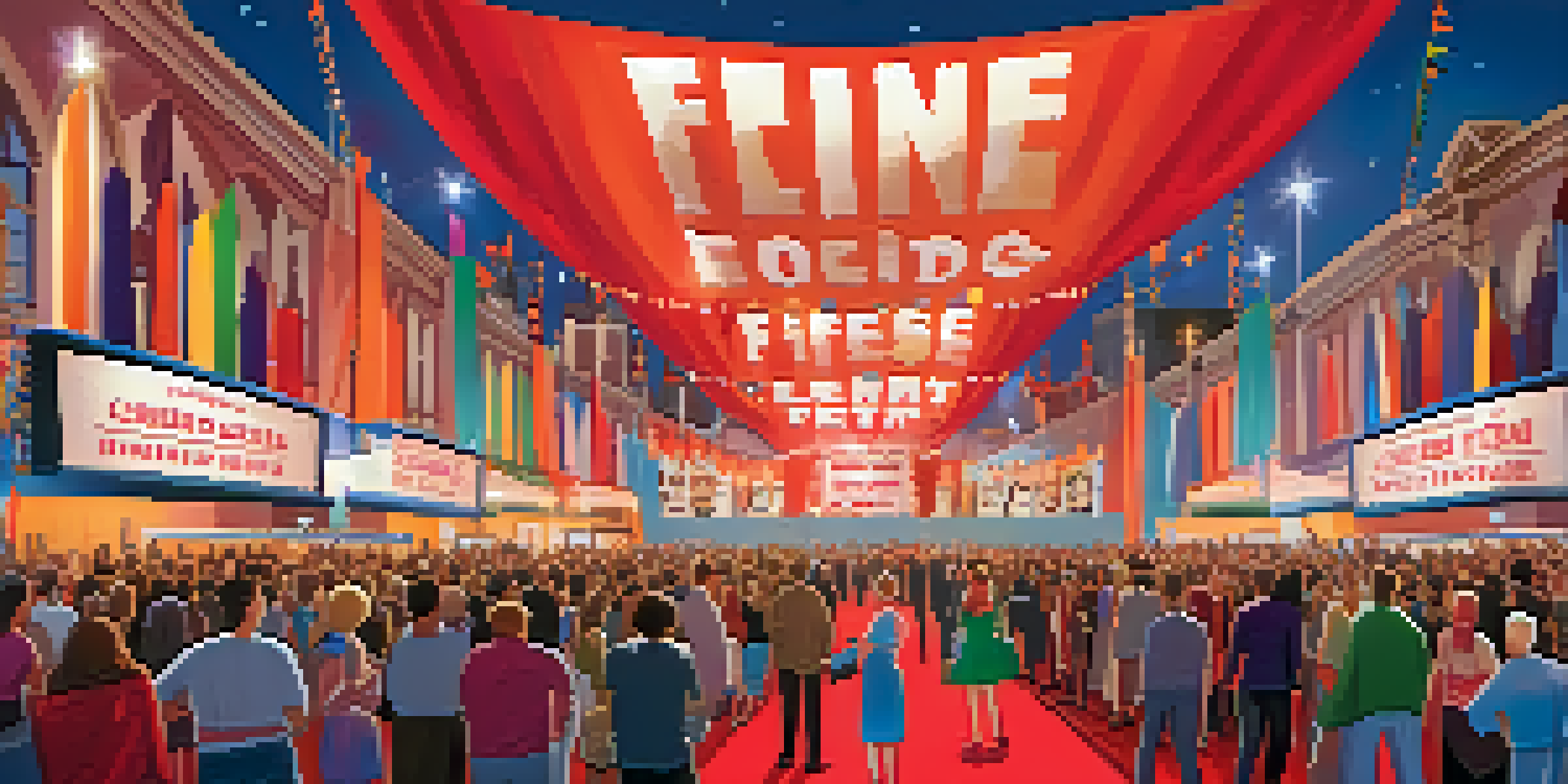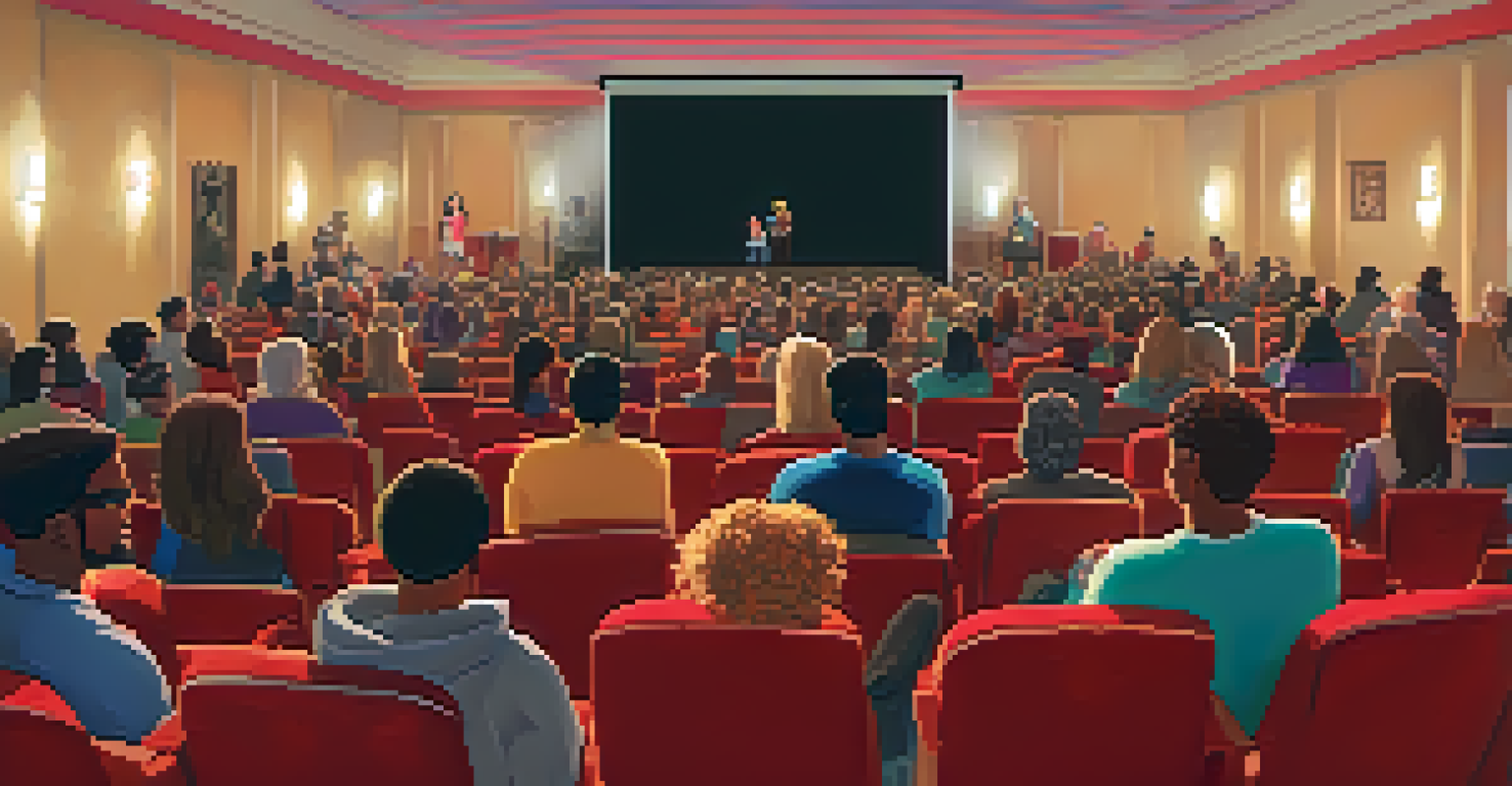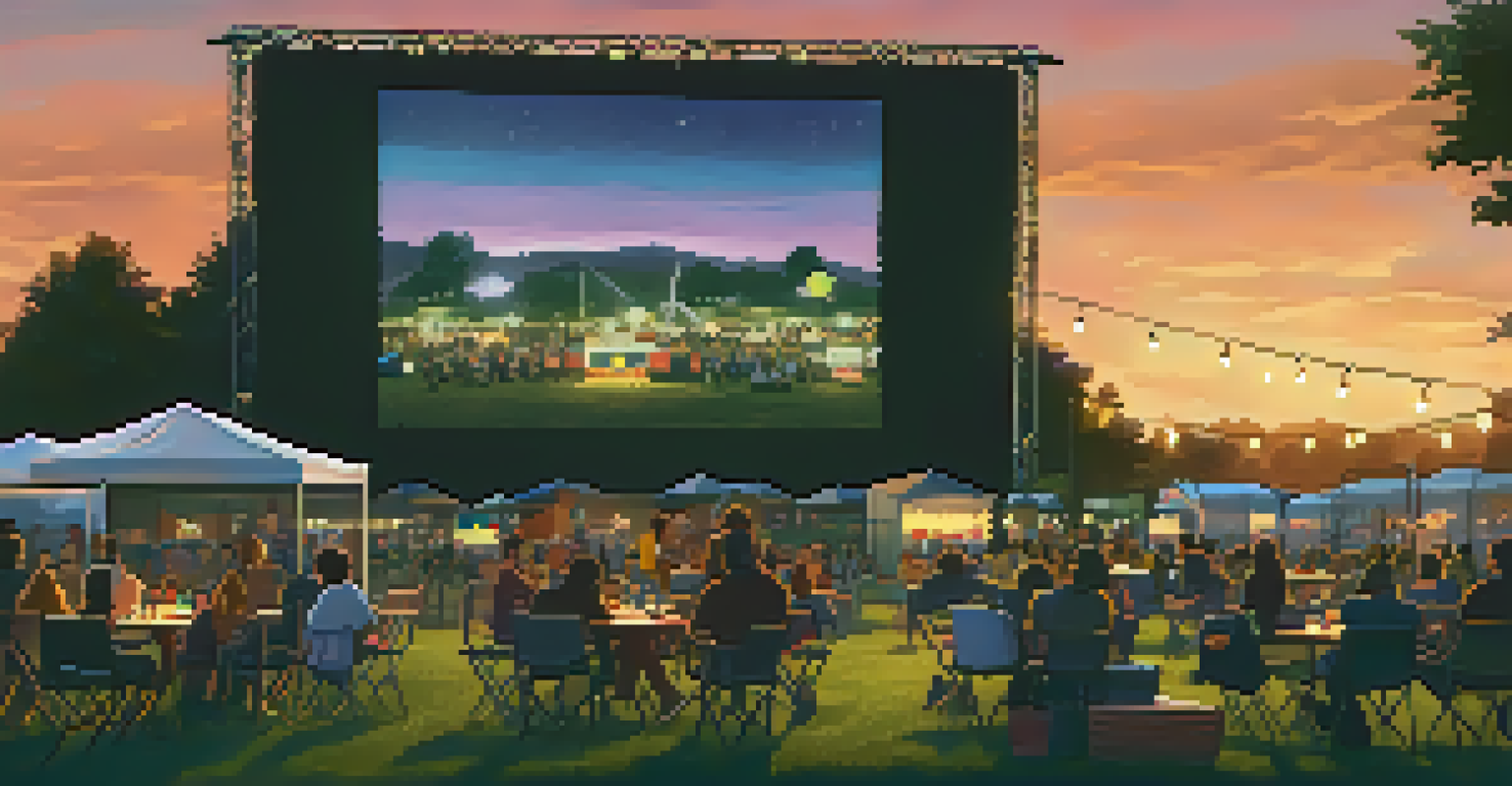How Film Festivals Influence Hollywood Film Distribution

Understanding the Role of Film Festivals in Hollywood
Film festivals serve as crucial platforms for filmmakers to showcase their work. They provide a unique opportunity for independent and international films to gain visibility in an industry dominated by major studios. Festivals like Sundance and Cannes have become the launching pads for films that may otherwise go unnoticed.
Film is a universal language. It speaks to the heart and mind and transcends boundaries.
These festivals attract industry professionals, critics, and audiences, creating an atmosphere ripe for networking and discussions. This environment not only allows filmmakers to present their stories but also encourages potential distributors to scout new talent and innovative ideas. As a result, many films find their footing in the competitive landscape of Hollywood through these events.
Moreover, the buzz generated at film festivals can significantly influence a film’s distribution strategy. A positive reception from audiences and critics can lead to offers from distributors, making festivals a vital cog in the machinery of film promotion and distribution.
The Power of Word-of-Mouth and Critical Acclaim
One of the most compelling aspects of film festivals is the power of word-of-mouth. When a film receives accolades or a standing ovation, it creates a ripple effect that can lead to increased interest from both audiences and distributors. This organic buzz often translates into higher ticket sales and broader distribution opportunities.

Critical acclaim from festival juries or prominent critics can elevate a film's status, transforming it from a hidden gem into a must-see movie. For instance, films that win awards at festivals often see a significant boost in their visibility and distribution reach, as distributors are eager to capitalize on the hype.
Festivals Boost Filmmaker Visibility
Film festivals provide essential platforms for filmmakers to gain exposure and connect with industry professionals.
In essence, the initial audience reactions and critical reviews at film festivals can set the stage for a film’s success in the wider market. This phenomenon highlights the importance of festivals as not just an exhibition space but also as a barometer for future commercial potential.
Spotlighting Diverse Voices and Unique Stories
Film festivals are celebrated for showcasing diverse voices and unique narratives that may not typically get attention in mainstream Hollywood. They provide a platform for underrepresented filmmakers to tell their stories, enriching the cinematic landscape with varied perspectives. This diversity is not only important for representation but also resonates with audiences craving fresh content.
The film festival is about more than just showing films. It is a place to create dialogue, to exchange experiences, and to discover new voices.
As these unique films gain traction at festivals, major studios often take notice, leading to partnerships or distribution deals that help bring these stories to a larger audience. This trend can be seen in films that explore themes of race, gender, and culture, which may have previously been overlooked by traditional distribution channels.
Consequently, festivals play a pivotal role in challenging the status quo of Hollywood, pushing for a more inclusive approach to filmmaking and distribution. The ripple effect of this inclusivity can reshape audience expectations and preferences in the long run.
Creating a Platform for Emerging Filmmakers
Film festivals serve as a launchpad for emerging filmmakers, offering them a chance to showcase their talent and creativity. Many filmmakers start their careers by screening short films or debut features at festivals, gaining invaluable exposure and industry connections. This can lead to opportunities that might otherwise be inaccessible without festival recognition.
The visibility gained at these events can attract potential investors and distributors who are interested in working with new talent. For example, filmmakers like Barry Jenkins and Greta Gerwig gained significant attention through their festival circuit experiences, resulting in successful careers in Hollywood.
Diversity in Storytelling Matters
These events spotlight underrepresented voices, enriching the film landscape with unique narratives that resonate with audiences.
By nurturing new voices, festivals contribute to the continual evolution of the film industry. They provide a space where fresh ideas can flourish, ultimately influencing the types of films that get distributed and seen by wider audiences.
The Economic Impact of Film Festivals on Local Economies
Film festivals often have a significant economic impact on their host cities, drawing in tourists, industry professionals, and media attention. This influx of visitors supports local businesses, from hotels and restaurants to shops and transportation services. The economic benefits can be substantial, making festivals an attractive proposition for city planners and local governments.
Moreover, successful festivals can put a city on the map as a cultural hub, enticing filmmakers to consider it for future projects. This can lead to a thriving film community that attracts more festivals, screenings, and production activities, creating a self-sustaining ecosystem.
Ultimately, the economic implications of film festivals extend beyond just immediate financial gain. They foster a vibrant cultural environment that can promote artistic endeavors and community engagement, further enriching the local scene.
Impact of Streaming Platforms on Festival Distribution
The rise of streaming platforms has changed the landscape of film distribution, including how festivals operate. Many festivals now offer virtual screenings, allowing films to reach broader audiences and enabling viewers who can't attend in-person to engage with new content. This shift is particularly important in a post-pandemic world, where accessibility has become a key consideration.
Streaming services are also increasingly involved in festivals, seeking out exclusive distribution rights for films that generate buzz. This can lead to significant deals for filmmakers who might not have had access to traditional distribution channels. As a result, films that perform well at festivals can find homes on platforms like Netflix, Amazon Prime, or Hulu.
Streaming Changes Distribution Game
The rise of streaming platforms has transformed festival distribution, allowing broader access to films and new opportunities for filmmakers.
Thus, the intersection of film festivals and streaming platforms creates new opportunities for filmmakers and audiences alike. It democratizes access to diverse films, ensuring that innovative storytelling reaches viewers outside the constraints of traditional theater distribution.
The Future of Film Festivals and Distribution Strategies
As the film industry continues to evolve, so too does the role of film festivals in shaping distribution strategies. With the growing emphasis on diversity, sustainability, and inclusivity, festivals are likely to adapt to reflect these values in their programming and outreach efforts. This evolution will ensure that festivals remain relevant and impactful in an ever-changing industry.
Moreover, the integration of technology, such as virtual reality and augmented reality experiences, may enhance the festival experience and broaden the types of films showcased. This can create new distribution avenues and engage audiences in innovative ways, ultimately enriching the film festival landscape.

In conclusion, the future of film festivals is intertwined with the transformation of Hollywood film distribution. By embracing change and continuing to champion diverse voices, festivals will play an essential role in the industry for years to come.